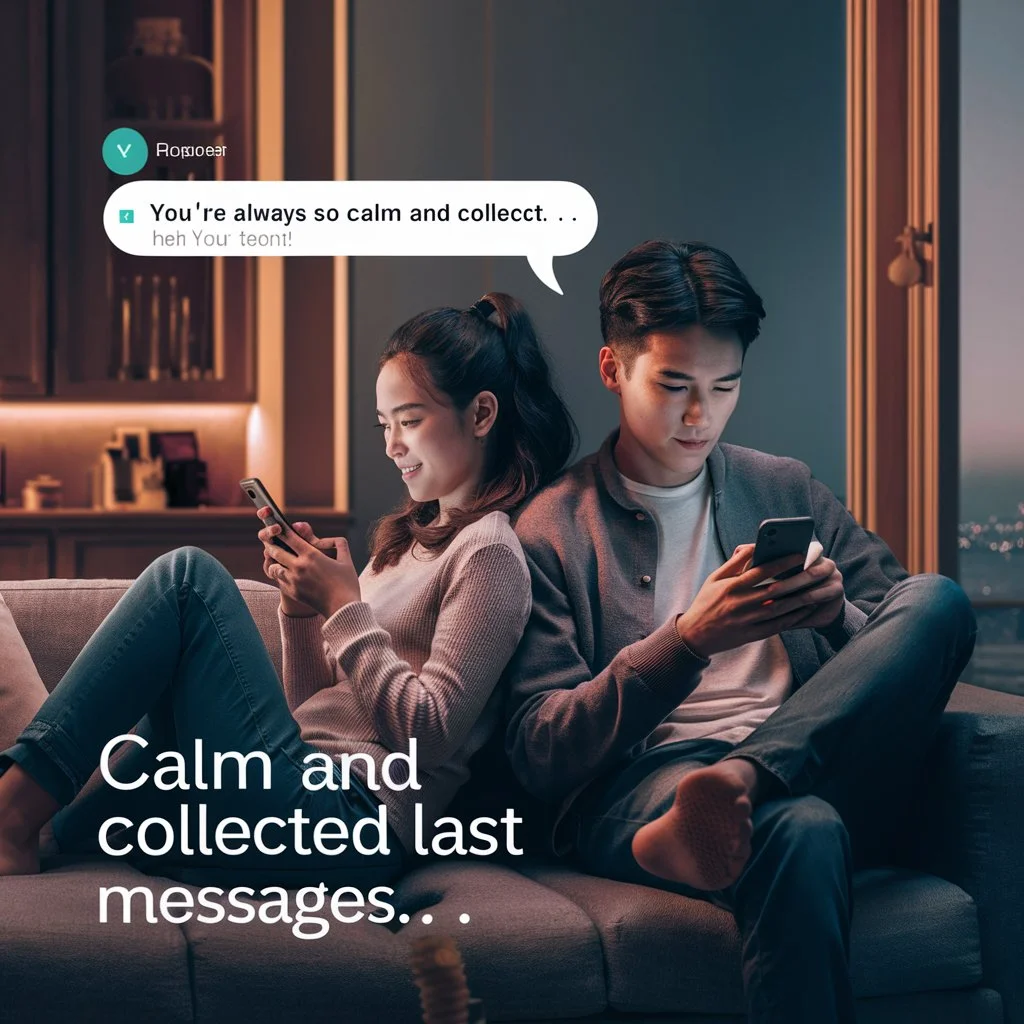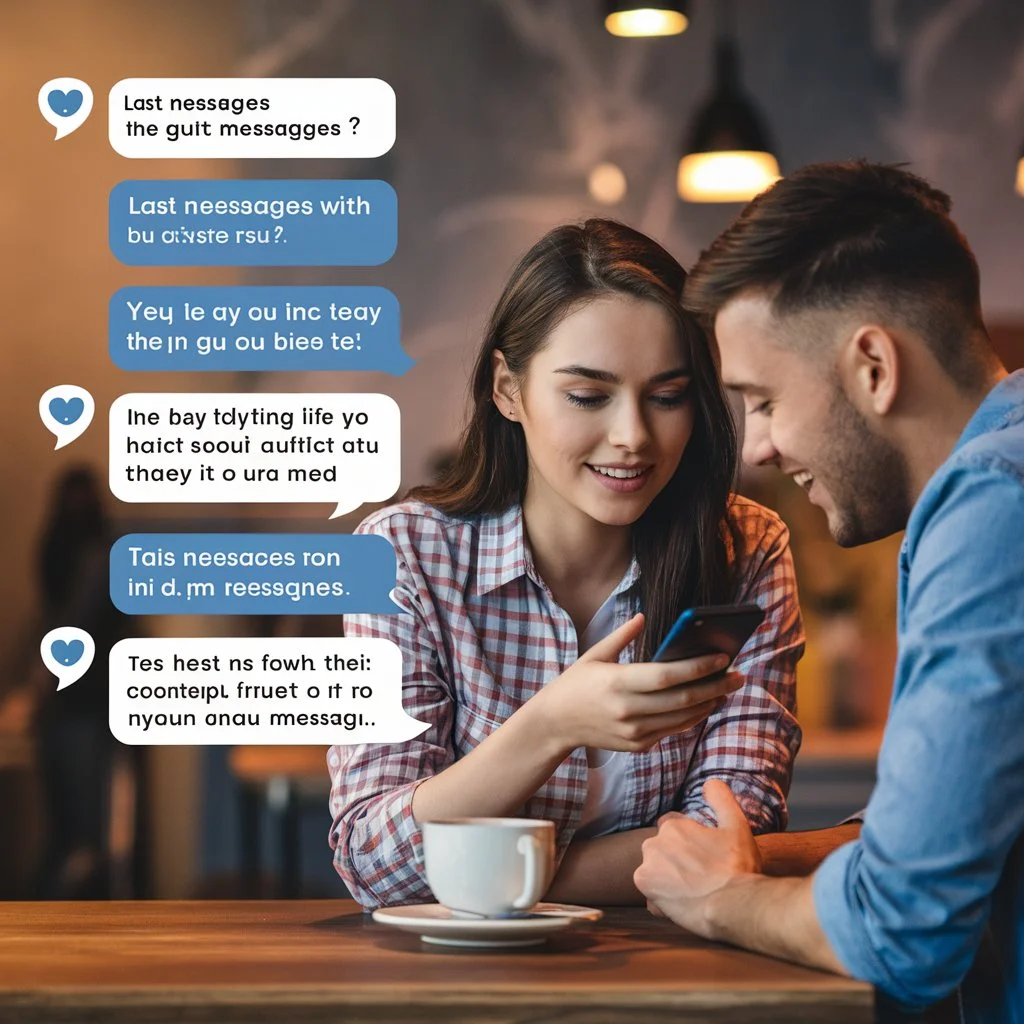Last updated on September 12th, 2024 at 07:36 am
When someone you care about starts ignoring you, it can be a challenging and emotional experience.
Whether it’s a friend, a loved one, or a colleague, being left without a response can feel frustrating and confusing.
Crafting the perfect last message can help you express your feelings and potentially find closure. This article offers 30 creative replies for a variety of situations and emotions.
Calm and Collected Last Messages

Maintaining your composure in your final message can convey strength and maturity. Even if you’re feeling hurt, keeping a calm tone can show that you’re handling the situation with grace.
Example 1:
“I noticed you haven’t been responding. I hope everything is okay on your end. Take care.”
Example 2:
“It seems like you need some space. I’m here if you want to talk in the future. Wishing you the best.”
Explanation:
These messages are short and neutral, emphasizing your understanding while also acknowledging the lack of communication. They are perfect for maintaining your dignity and showing respect for the other person’s needs.
Polite Last Messages
Politeness can go a long way in preserving relationships and leaving a positive impression, even if things aren’t working out as you hoped.
Example 1:
“I understand you might be busy. Just wanted to check in and let you know I’m here when you’re ready.”
Example 2:
“Thank you for the time we’ve shared. If you ever need to talk, I’m here.”
Explanation:
These polite messages focus on respect and understanding, showing that you’re considerate of the other person’s situation. They convey your willingness to reconnect if circumstances change.
Direct and Honest Last Messages
Sometimes, the best approach is to be straightforward and honest about how you feel and what you need.
Example 1:
“I’ve noticed you haven’t been responding. If something has changed, please let me know.”
Example 2:
“It’s clear that you’re not interested in continuing our conversations. I appreciate honesty, so let’s be direct with each other.”
Explanation:
Direct messages cut through ambiguity and seek clarity. They are ideal for those who value transparency and want to avoid miscommunication.
Heartfelt Last Messages

Expressing genuine emotions can help you convey the depth of your feelings and potentially touch the other person’s heart.
Example 1:
“I miss our conversations and the time we spent together. I hope we can find a way to reconnect.”
Example 2:
“I’ve cherished every moment we’ve shared. It’s hard to see this silence, but I hope you find happiness.”
Explanation:
Heartfelt messages highlight your emotional connection and the importance of the relationship to you. They can be poignant and touching, aiming to evoke a response.
Respectful Last Messages
Respect is crucial, especially when addressing someone who has chosen to distance themselves. Showing respect can help maintain dignity on both sides.
Example 1:
“I respect your need for space. I’ll be here if you decide to reach out.”
Example 2:
“Your silence tells me a lot. I respect your decision and wish you all the best.”
Explanation:
These messages prioritize respect and acknowledgment of the other person’s choices, demonstrating your ability to honor their needs even in difficult times.
Firm and Assertive Last Messages
Being firm and assertive can help you establish boundaries and communicate your stance clearly.
Example 1:
“I deserve clear communication. If you can’t provide that, it’s best we part ways.”
Example 2:
“I value honesty and directness. If you’re not interested, it’s better to be straightforward.”
Explanation:
Assertive messages are about self-respect and boundaries. They convey your expectations and standards, making it clear what you will and will not tolerate.
Gentle and Understanding Last Messages

Showing gentleness and understanding can soften the blow and demonstrate your empathy towards the other person’s situation.
Example 1:
“I understand that you might be going through something. I’m here when you’re ready to talk.”
Example 2:
“Everyone needs space sometimes. Take your time, and I’ll be here if you need me.”
Explanation:
These messages offer compassion and patience, recognizing that there may be reasons behind the silence that you’re not aware of.
Empathetic Last Messages
Empathy can bridge gaps and show that you truly care about the other person’s feelings and circumstances.
Example 1:
“It must be difficult for you right now. If you need support, I’m always here.”
Example 2:
“Your silence suggests you might be struggling. I’m here if you need someone to listen.”
Explanation:
Empathetic messages focus on understanding and support, offering a hand without pushing for a response. They show your willingness to be there for the other person.
Short and Sweet Last Messages
Sometimes, a brief message is all that’s needed to convey your thoughts without overwhelming the other person.
Example 1:
“Take care and be well.”
Example 2:
“Hope all is well on your end.”
Explanation:
Short and sweet messages are concise and positive, providing a quick, friendly note that doesn’t demand a response but leaves the door open for future communication.
Long and Detailed Last Messages

For more complex relationships or situations, a detailed message might be necessary to fully express your thoughts and feelings.
Example 1:
“I’ve been reflecting on our time together and what might have led to this silence. I value our relationship deeply and would like to understand if there’s something I did or if you’re facing challenges that make communication difficult. Please know that I am here to listen and support you, whatever the reason may be. If you need space, I respect that, but I hope we can find a way to move forward, whether that’s together or separately.”
Example 2:
“I wanted to take the time to express how much your friendship has meant to me. The recent lack of communication has been tough, and I understand if you’re dealing with things that are hard to talk about. I wish you nothing but the best and hope that we can reconnect when you’re ready. Please take care of yourself, and know that I’m always here if you need me.”
Explanation:
Detailed messages allow for thorough expression of your thoughts and emotions, providing clarity and closure. They are suitable for situations where a lot has been left unsaid.
Positive and Encouraging Last Messages
Ending on a positive note can help leave a lasting, uplifting impression, even if things haven’t gone as planned.
Example 1:
“I believe in your strength and hope you find happiness in whatever you do.”
Example 2:
“You’re capable of amazing things. I hope life brings you joy and success.”
Explanation:
Positive messages aim to uplift and inspire, focusing on the other person’s potential and wishing them well despite the current situation.
Reflective Last Messages
Taking a reflective approach can show your thoughtfulness and give the other person something to ponder.
Example 1:
“I’ve been thinking a lot about our relationship and what it has meant to me. I hope we both find clarity.”
Example 2:
“Reflecting on our time together, I realize how much I’ve learned and grown. Thank you for that.”
Explanation:
Reflective messages emphasize personal growth and understanding, encouraging both parties to consider the impact of their relationship.
Clear and Concise Last Messages

Clarity is key when you want to ensure your message is understood without any ambiguity.
Example 1:
“It’s clear you’re not interested in continuing this conversation. I understand and wish you well.”
Example 2:
“Since you’re not responding, I’ll take that as a sign you need space. Take care.”
Explanation:
Clear and concise messages leave no room for misunderstanding, directly addressing the situation and your interpretation of it.
Friendly Last Messages
A friendly tone can help keep the message light and open the door for future reconnections.
Example 1:
“Hey, just checking in to see how you’re doing. Hope everything is okay.”
Example 2:
“Miss our chats! Hope to hear from you soon.”
Explanation:
Friendly messages maintain a positive and approachable tone, showing that you still care about the person and are open to reconnecting.
Warm and Sincere Last Messages
Warmth and sincerity can help convey your genuine feelings and leave a lasting impression.
Example 1:
“I’ve truly enjoyed our time together. I hope we can reconnect when the time is right.”
Example 2:
“Thank you for the memories we’ve shared. I hope you find happiness and peace.”
Explanation:
Warm and sincere messages express genuine affection and gratitude, making it clear that you value the relationship.
Hopeful Last Messages

Ending on a hopeful note can leave the door open for future possibilities.
Example 1:
“I hope we can find a way to reconnect in the future. Take care until then.”
Example 2:
“Maybe our paths will cross again someday. Wishing you all the best.”
Explanation:
Hopeful messages emphasize future possibilities, leaving room for reconnection while respecting the present situation.
Grateful Last Messages
Expressing gratitude can help you focus on the positives and end things on a good note.
Example 1:
“Thank you for the good times and memories. I appreciate everything we’ve shared.”
Example 2:
“I’m grateful for the moments we’ve had together. Wishing you all the best moving forward.”
Explanation:
Grateful messages highlight appreciation and positivity, focusing on the good aspects of the relationship.
Compassionate Last Messages
Showing compassion can demonstrate your empathy and understanding, making it clear that you care about the other person’s well-being.
Example 1:
“It seems like you’re going through a tough time. I’m here if you need anything.”
Example 2:
“I understand you might need space. Please know I’m here if you ever need support.”
Explanation:
Compassionate messages focus
on empathy and support, acknowledging the other person’s feelings and offering assistance without pressure.
Closure-Seeking Last Messages

Seeking closure is often important to find peace of mind and move forward positively.
Example 1:
“I feel unsettled by the lack of communication. Could we talk to clarify things?”
Example 2:
“I’d like to understand your perspective better. Is there a reason for the silence?”
Explanation:
Closure-seeking messages aim for clarity and understanding, addressing unanswered questions and seeking resolution for emotional closure.
Moving On Last Messages
When it’s time to move on, messages can focus on acceptance and closure.
Example 1:
“I’ve come to accept things as they are. Wishing you the best in your journey.”
Example 2:
“I think it’s best we part ways. Thank you for the experiences we’ve shared.”
Explanation:
Messages about moving on emphasize acceptance and closure, signaling readiness to let go and move forward.
Empowering Last Messages
Empowering messages can inspire both you and the other person to grow from the experience.
Example 1:
“This silence has shown me my own strength. I’m ready to embrace what’s next.”
Example 2:
“I hope this silence leads us both to paths where we can thrive and grow.”
Explanation:
Empowering messages focus on self-growth and positivity, encouraging both parties to see the silence as an opportunity for personal development.
Thoughtful Last Messages

Thoughtful messages show consideration and careful reflection on the relationship and its impact.
Example 1:
“I’ve been thinking about our time together and what it’s taught me about myself.”
Example 2:
“Your silence has given me a lot to reflect on. I’m grateful for the lessons.”
Explanation:
Thoughtful messages highlight introspection and gratitude, encouraging both parties to reflect on the relationship’s significance.
Peaceful Last Messages
Ending things peacefully can help maintain harmony and goodwill.
Example 1:
“I wish you peace and happiness in everything you do.”
Example 2:
“Let’s part with peace in our hearts. Thank you for the memories.”
Explanation:
Peaceful messages emphasize harmony and goodwill, promoting a positive and respectful conclusion to the relationship.
Farewell Last Messages
Farewell messages acknowledge the end of the relationship with grace and dignity.
Example 1:
“Goodbye for now. I’ll always remember the good times we shared.”
Example 2:
“It’s time to say goodbye. Thank you for being part of my journey.”
Explanation:
Farewell messages signify closure and finality, acknowledging the end of the relationship while cherishing the memories.
Apologetic Last Messages

If apologies are warranted, expressing regret can help in seeking forgiveness and closure.
Example 1:
“I apologize if I’ve done anything to upset you. Please forgive me.”
Example 2:
“I’m sorry if my actions have caused distance between us. I value your friendship.”
Explanation:
Apologetic messages focus on owning up to mistakes and seeking reconciliation, aiming to mend any hurt caused.
Regretful Last Messages
Expressing regret can show humility and sincerity in acknowledging missed opportunities.
Example 1:
“I regret not expressing how much our conversations meant to me.”
Example 2:
“I wish things could have been different between us. I’ll miss our chats.”
Explanation:
Regretful messages highlight acknowledgment of missed chances and convey genuine feelings of loss.
Optimistic Last Messages
Optimistic messages look towards the future with hope and positivity.
Example 1:
“Although things have changed, I believe in brighter days ahead for both of us.”
Example 2:
“Let’s look ahead with optimism, wherever life takes us next.”
Explanation:
Optimistic messages emphasize hope and positivity, focusing on the potential for growth and happiness moving forward.
Respectful Boundaries Last Messages

Respecting boundaries is essential, especially if the other person has chosen distance.
Example 1:
“I respect your decision for space. I’ll be here if you ever want to reconnect.”
Example 2:
“I understand you need time. I’ll wait for you to reach out when you’re ready.”
Explanation:
Messages about respectful boundaries prioritize understanding and patience, showing respect for the other person’s needs.
Constructive Last Messages
Constructive messages can offer closure while providing feedback for future growth.
Example 1:
“I appreciate our time together. If there’s anything I could have done better, I’d like to know.”
Example 2:
“Let’s learn from this experience to become better versions of ourselves.”
Explanation:
Constructive messages aim for growth and improvement, focusing on lessons learned from the relationship.
Kind and Considerate Last Messages
Kindness and consideration can soften the impact of the final message and leave a positive impression.
Example 1:
“Thank you for being part of my life. I wish you nothing but happiness.”
Example 2:
“You deserve all the best things in life. Take care of yourself.”
Explanation:
Kind and considerate messages emphasize warmth and goodwill, leaving a gentle and positive final impression.
Conclusion
Crafting the last message to someone who ignores you is a delicate balance of expressing your feelings, respecting the other person’s boundaries, and seeking closure for yourself. Whether you choose to be calm and collected, direct and honest, or empathetic and understanding, the key is to communicate authentically while maintaining dignity and respect.

James Wilson is the creative mind behind ReplySwift.com. With a talent for crafting quick and clever responses, James helps others communicate more effectively. On ReplySwift.com, he shares tips, templates, and insights to make every reply impactful and engaging. Join James and elevate your response game to new heights.












